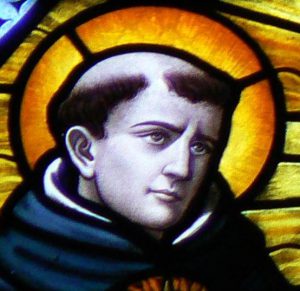St. Thomas Aquinas
Italian
Scholastic theologian. His life and work expressed the value, not just of logic, especially Aristotelian logic, on the one side, and traditional Christian faith, revelation, and Church authority, on the other side, but of seeking to synthesize the two. He is particularly known for five logical proofs of the existence of God. His influence within the Church was so vast that the term Thomism (which was initially contrasted to the thought of Dun Scotus or Scotism) eventually came to refer either to Aquinas or to the general doctrines of the Roman Catholic Church.
